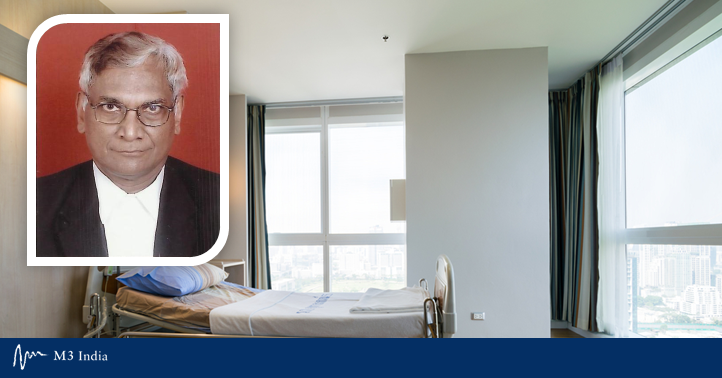Is it necessary to inform the police whenever a death occurs on the operation table? Dr. MC Gupta answers
M3 India Newsdesk Nov 29, 2018
Dr. MC Gupta, a doctor turned lawyer, guides with practical answers and insights for queries posted by Indian doctors. Here he answers one such query related to reporting patient deaths to the police.

QUESTION—Is it necessary to inform the police whenever a death occurs on the operation table?
Dr. MC Gupta answers
- No, it is not necessary. There is no law or judicial principle or pronouncement in support of the belief held by many doctors, especially FMT specialists, that every DOT (Death on Table) should be informed to the police.
- The basic principle is that a doctor should inform the police as soon as he suspects foul play (including unnatural death) during the course of his duties, whether in the OPD or otherwise (including DOT, when circumstances so warrant).
- It goes without saying that every unnatural death must be reported to police.
- There is no reason for the doctors to inform the police unless foul play is suspected. However, the relatives are within their rights to make a police complaint. The police may then get PM done if they want.
- The dictionary definition of unnatural death is given below:
Unnatural death*
a. A death caused by external causes—e.g., injury or poisoning—which includes death due to intentional injury, such ashomicide or suicide, and death caused by unintentional injury in an accidental manner
b. Forensic medicine: A death that is '…caused by external causes–injury or poisoning… which includes death… due to intentional injury such as homicide or suicide, and death caused by unintentional injury in anaccidental manner.' See Depraved heart murder, Murder. Cf Natural death.
- There used to be a Coroners Act, 1871, [Now no longer in operation]. Section 8 of this act reads--
"8. Jurisdiction to inquire into deaths.- When a Coroner"[ has reason to believe] that the death of any person has been caused by accident, homicide, suicide, or suddenly by means unknown, or that any person being a prisoner has died in prison, and that the body is lying within the place for which the Coroner is so appointed, the Coroner shall inquire into the cause of death. Every such inquiry shall be deemed a judicial proceeding within the meaning of section 193 of the Indian Penal Code (45 of 1860 )."
It is clear that a death on operation table is not caused by " accident, homicide, suicide, or suddenly by means unknown" unless the Coroner has reason to believe so. Since there is no coroner now, there is no one to believe so!
- The Haryana Medico-Legal Manual 2012, available on internet, does not give any instruction regarding death on table. It even does not mention the topic at all. It is surprising that the belief continues that a hospital must inform the police about any and every DOT. The nearest mention of such a situation is in the following words**--
“Suspecting foul play in cases admitted as ordinary non–medicolegal patients. Cases which are admitted as an ordinary non-medico-legal case but in which the Medical Officer suspects foul play should be immediately brought to the notice of the police in writing so that they may take necessary action in the matter. In the event of death of such a case, a written report should be sent to the police so that a medicolegal post-mortem could be arranged. The body of such a case should be sent to the mortuary and not be handed over to the relatives.”
- Rather than informing the police about every DOT, what is needed of the concerned doctor is to ensure that the documents are proper, complete and well preserved, so that they can be produced if and when asked by the police/court.
- The words " unnatural death" occur in section 40 of CrPC. Unnatural death, without using these words, is discussed in section 174 CrPC also. Unnatural death, without using these words, is discussed in section 304B, IPC also. None of these sections, and the case law related to the same suggest that DOT is an unnatural death.
Law is not what a lawyer or a law graduate or an FMT specialist or an intelligent layman thinks. Law is what is written in the statute or in judgments of SC/HC.
On this yardstick, there is no law that every DOT is to be considered an unnatural death.
- Doctors keep on lamenting that they are too much pressured by rules and laws, at the same time refusing to accept the responsibility of applying their own mind and using discretion and keeping proper records.
By routinely informing the police about DOT, the following will may result:
i)--Unnecessary delay in OT work.
ii)-- Unnecessary workload on the hospital administration.
iii)-- Unnecessary workload on the police.
iv)--Unnecessary likely harassment of relatives by the police.
v)-- Unnecessary possible hint to the police that they can boss over doctors.
Source:
*McGraw-Hill Concise Dictionary of Modern Medicine. © 2002 by The McGraw-Hill Companies, Inc.
https://medical-dictionary.thefreedictionary.com/unnatural+death
**Para 11, Haryana Medico-Legal Manual 2012
Disclaimer- The views and opinions expressed in this article are those of the author's and do not necessarily reflect the official policy or position of M3 India.
Content from the writer has been directly replicated on the website. No edits have been made.
The writer, Dr. MC Gupta is a practising lawyer specialising in medical negligence cases. He also has an MD Medicine from AIIMS, Delhi where he also worked as a faculty member for 18 years, later working another 10 years as a Professor and Dean at National Institute of Health and Family Welfare, New Delhi, before pursuing law.
-
Exclusive Write-ups & Webinars by KOLs
-
Daily Quiz by specialty
-
Paid Market Research Surveys
-
Case discussions, News & Journals' summaries